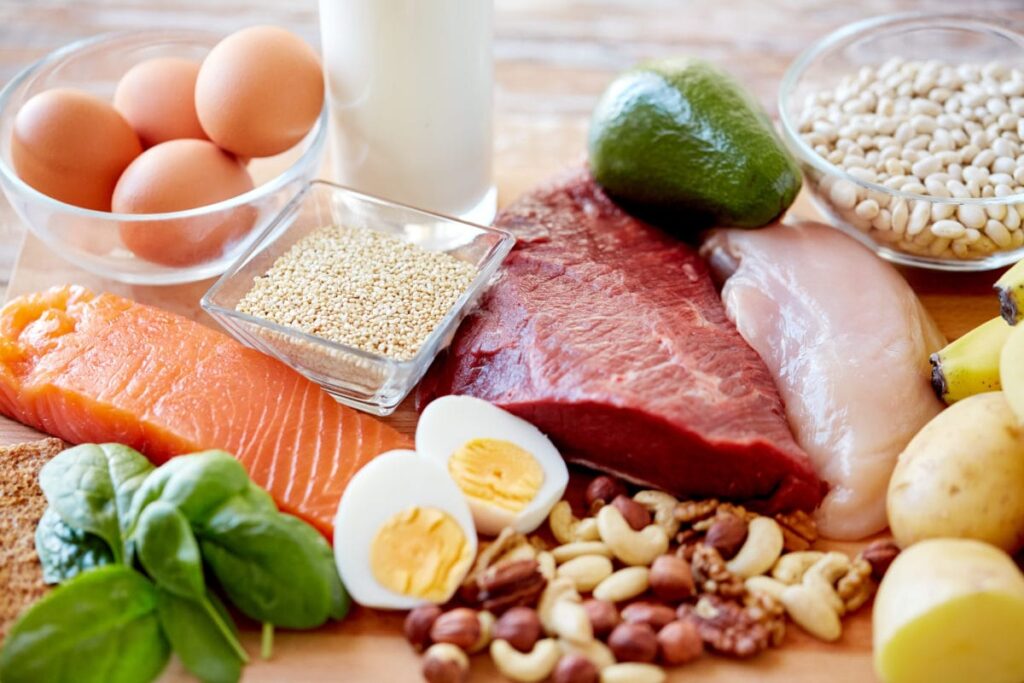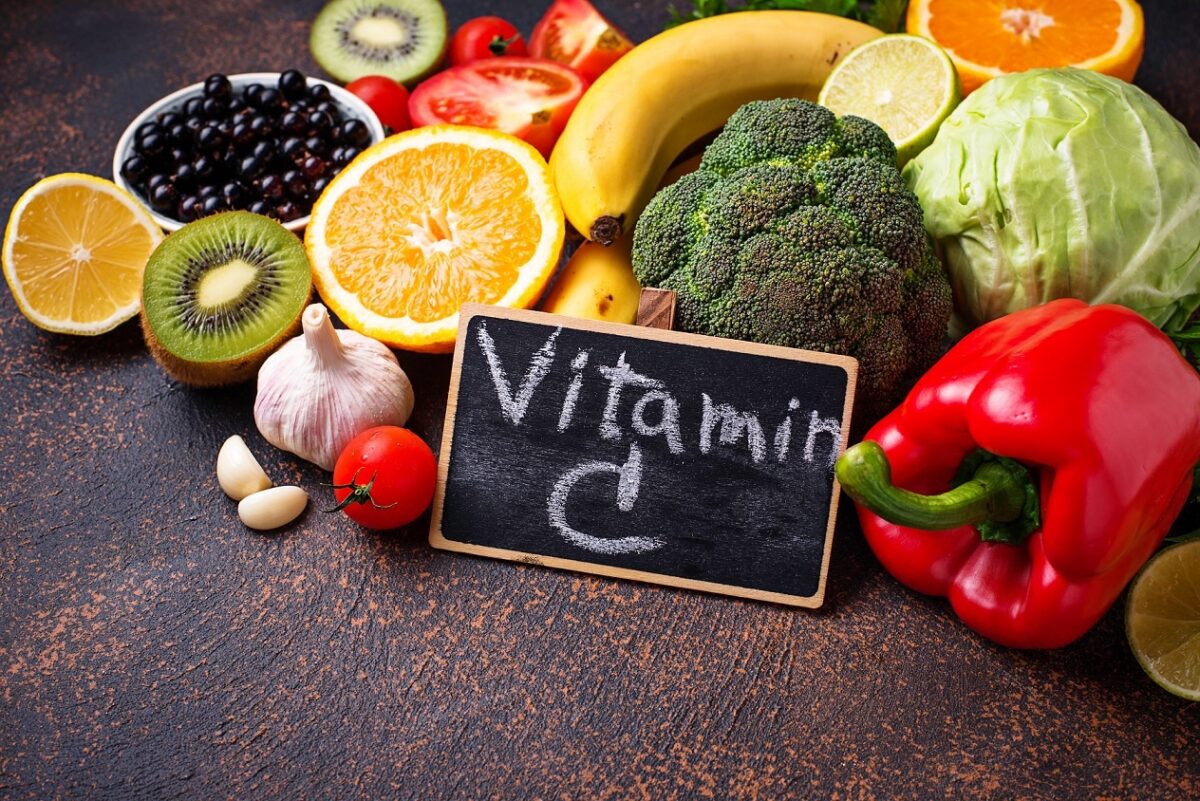Since the beginning of the pandemic, experts point out the importance of strengthening the immunity against coronavirus. They recommend a healthy diet, but also an increased intake of vitamins. Instead of using vitamins in a form of supplements, it is far better to get them through foods.
Why Are Vitamins So Important?

Source: unlockfood.ca
Vitamins are organic substances of diverse structure and chemical properties. Although the human body needs them in small amounts – they are significant for the normal functioning of our body. They have a major role in building our immunity, growth, development, reproduction, etc. Each vitamin has its function and participates in numerous biochemical reactions in the body. A vitamin deficiency causes a specific disease. Although we live in a modern age, when we can get vitamins and minerals using the supplements available to us – it is still far better to do it naturally, and take sufficient amounts of vitamins through food.
Why NO To The Supplements?

Source: news.okstate.edu
We won’t say you shouldn’t be taking supplements – however, the natural way is always the healthiest way. Experts agree on one thing, and that is that supplements, just like other medicines, have their time of taking, their dose, their way of taking – and above all, you need an expert to recommend which vitamins and doses to take, not to buy them yourself. For example, when it comes to vitamin C – there is no reason to take over two grams a day. There is even an upper limit that should not exceed and it’s exactly two grams. The good side of vitamin C is it is hydrosoluble, so it dissolves in water. That means that even when we take more than the allowed dose – it will be excreted from the organism through urine. However, not all vitamins have water-soluble properties, so you must be very careful with their use. This is also the most important reason why we should take vitamins through food.
The basic recommendation is that if you buy supplements, you should look at the declaration of what is written as for the daily intake – and see what percentage of vitamins are in that supplement in relation to what should be your daily intake. The problem is that we don’t even know if we are getting enough of a vitamin or mineral through food and maybe we don’t need a certain supplement.
How To Choose Foods That Are Full Of Vitamins?

Source: familydoctor.org
We already know the answer to this question to a greater or lesser extent. What is important to note – is the recommendation that you take sufficient daily amounts of vitamins, according to your needs and age. Just as you should not overdo anything, so it is with vitamins. Too much of vitamins can have a counter effect – and instead of feeling healthier, we will get sick from hypervitaminosis. Therefore, moderation is the key to success, and vitamins in their natural form are natural remedies, which we take through food – and this is the healthiest way to achieve our goal. And what vitamins do we need during the day and in which food can we find them?
Vitamin A

Source: treningplatforma.com
One of the most significant vitamins for the good functioning of the organism is vitamin A, which is necessary for the skin, fertility, teeth, and bones formation – and complete function of the organism. Many research has proven that it can prevent epithelial cell cancer, which usually occurs in the cervix and colon. This vitamin is mostly found in carrots, red peppers, dried apricots, headed vegetables, dandelion leaves, and the liver.
B Vitamin Complex
-
B1
B1 is necessary because it converts carbohydrates into energy and fat, so it must not be overlooked. Lack of it will affect the peripheral nerves, causes leg cramps, numbness of the legs and arms, tingling in your feet, which is more pronounced at night – and occasional breaking of the toes. A bigger deficiency of B1 encourages mental confusion, muscle weakness, fluid retention, higher blood pressure, or difficulty walking. You can find it in wheat germ, pine nuts, soybeans, sunflower seeds, and Brazilian nuts.
-
B2
This one is essential in energy production. Its deficiency causes sensitivity of the eye to light, skin problems and can lead to scaly, oily, and chapped skin around the mouth, nose, eyelids, and ears, swelling of the eyelids, purple tongue. It also affects anemia and seborrheic dermatitis. The food rich in it is yeast, liver, wheat germ, wholemeal rice, and mushrooms.
-
B12
We need B12 to create the blood cells and nerve sheaths necessary for the proper functioning of nerves as well as DNA. The lack of it can cause certain forms of anemia. Warnings that a person lacks this vitamin are weakness, numbness, tingling, which shows nerve damage. Vitamin B12 is found in liver, shellfish, oysters, tuna, salmon, cheese, lamb, egg yolk.
Vitamin C

Source: amgsport.net
Not having enough vitamin C in the body, will lead to slower healing of wounds, pain in muscles, bones, or joints, improper growth, and tooth decay. A proper intake is necessary for neurotransmitters, bile acids, and DNA. It is mostly found in cabbage, kale, broccoli, broccoli, all kinds of peppers, oranges, lemons, all kinds of southern fruits, citrus fruits, kiwis.
Vitamin D

Source: lepaisrecna.mondo.rs
Vitamin D is fat-soluble and is often called sun vitamin because it is created by exposure to sunlight. It is known that it is responsible for protecting bones and teeth, that it is necessary for calcium and phosphorus metabolism – as well as that children who do not get enough vitamin D, are rickets, and adults can get osteomalacia (softening of bones), involuntary muscle twitching, muscle cramps. The foods it contains are sardines, herring, butter, liver, egg yolks, fortified milk, and cereals.
Conclusion
Natural is always the best, even for our body, and complete immunity. Vitamins are best to be taken through food, not artificially, even though there are categories such as pregnant women or children or the elderly – who must take them regularly as a supplement to their regular diet. However, it is still recommended that the doses should be determined by a doctor or nutritionist.


